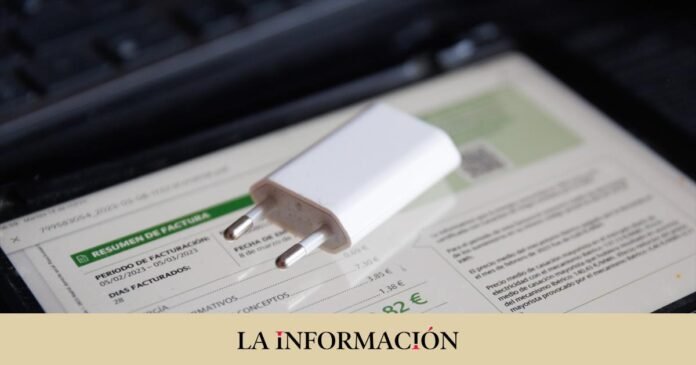The drop in electricity prices that has occurred in the last month and the moderation in food prices have allowed inflation to fall below 3% for the first time in half a year. Prices would have risen 2.8% in February in an interannual rate, six tenths less than in January, according to the data released this Thursday by the National Institute of Statistics (INE), which allows some relief in the pockets of consumers. consumers and for companies.
In the opposite direction, fuels stand out, whose prices would have increased this month and had fallen in February 2023. Inflation rose three tenths in February compared to the previous month. Core inflation, which excludes fresh food and energy from its calculation and tends to reflect more structural tensions, stands at 3.4%, its lowest level in the last two years.
Interannual inflation began the year with a rise of three tenths, up to 3.4%, due to the rising cost of electricity and with tensions still in food prices, since the shopping basket continued to increase in price by an average of 7. 4%, one tenth more than the previous month. In December and November of last year the general CPI rate had moderated, which allowed it to close last year at 3.1%.
This increase in the cost of electricity at the start of 2024 is explained by the partial withdrawal of the tax reductions that the Government allowed within the framework of what is known as the ‘social shield’ to confront the energy and inflationary crisis and the effects of the Russian invasion. of Ukraine – this withdrawal will continue to occur gradually throughout the year.
In February, meanwhile, the effect of the wind and the sun would have allowed a clear decrease in the electricity bill paid by households and this could be, in fact, the lowest in more than three years, after falling by 15% . compared to January and 28% compared to the same month a year ago.
The ECB is closely monitoring the data ahead of its meeting on March 7
The European Central Bank (ECB) closely follows the evolution of prices in the main economies of the Eurozone. The members of the entity’s governing council, who hold their next meeting on March 7, unanimously approved maintaining interest rates at 4.5% in January and will consider by broad consensus that it was premature to discuss possible reductions at that meeting, as and as can be seen from the recently published minutes.
The issuer understands that the risk of lowering them too early is still greater than that of doing so too late, despite the fact that the economic context remains weak. Germany, the European locomotive, contracted 0.3% last year and its weakness has kept the region as a whole stagnant despite the good performance of economies such as Italy and Spain, which were surprised with an advance of 2.5%. % in the accumulated amount for the year, above what the Government and the main national and international organizations had anticipated.
The cooling of the region has not had a negative impact, however, on the labor market, which has generally continued to show notable resilience in most states. Inflation in services and the rise in salaries are two of the factors that keep the ECB vigilant and that lead it to remain cautious about the possibility of the feared second-round effects occurring and generating an inflationary spiral.
The fact that the ECB is not yet considering cutting the price of money has a clear effect on financing costs and the monthly payment that families who are paying a mortgage loan have to pay. The twelve-month Euribor, the reference indicator for variable rate mortgages, rose in February to around 3.67%, thus breaking a streak of three consecutive declines that began in November.

